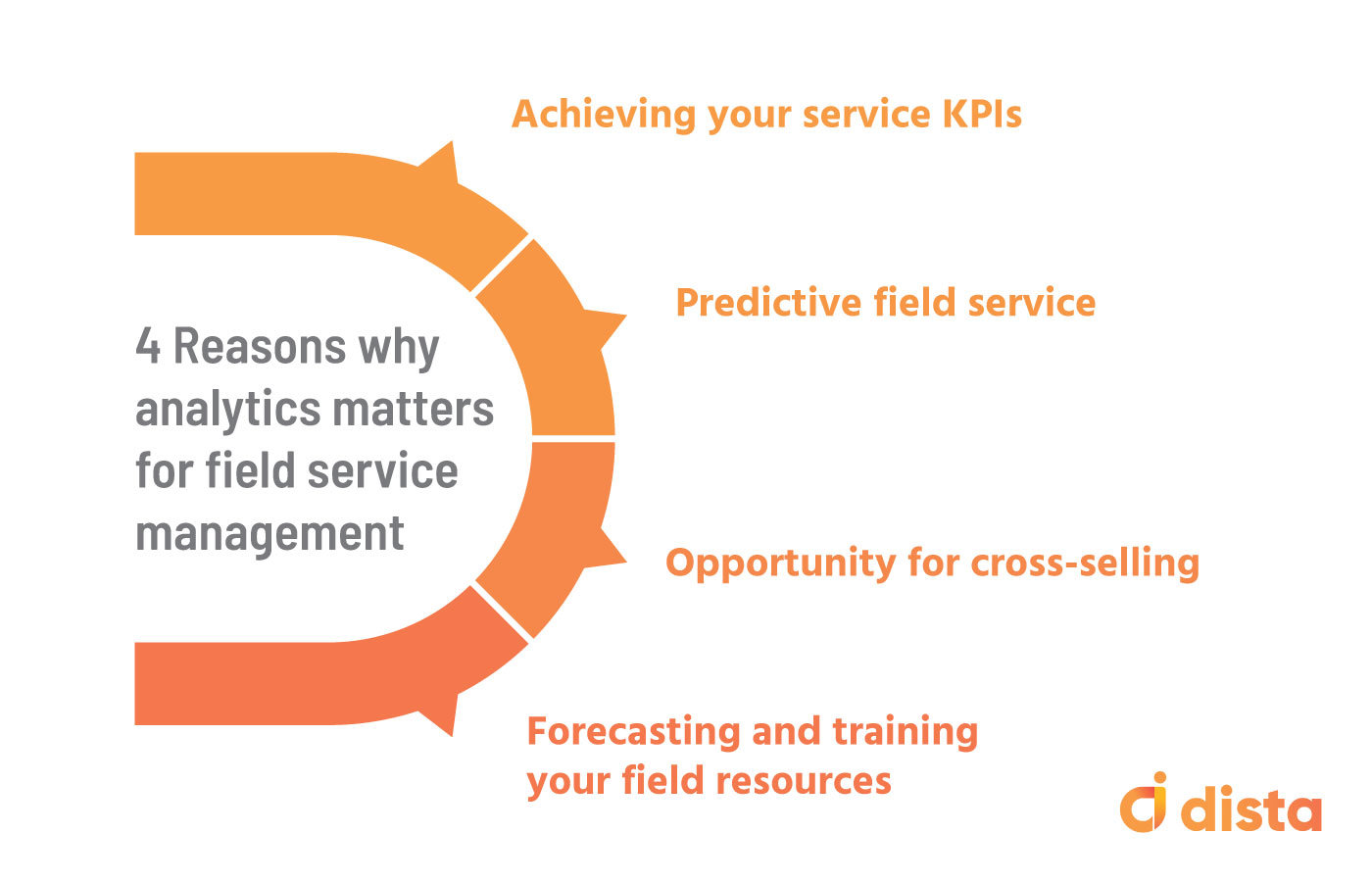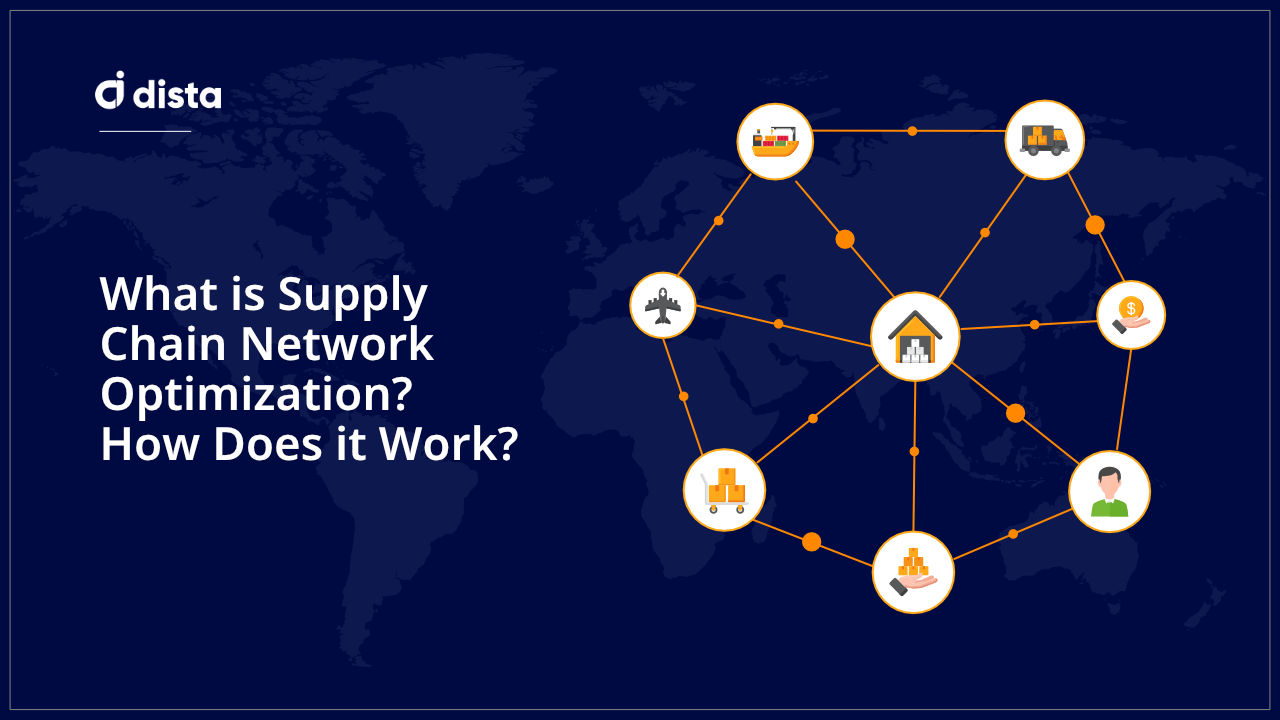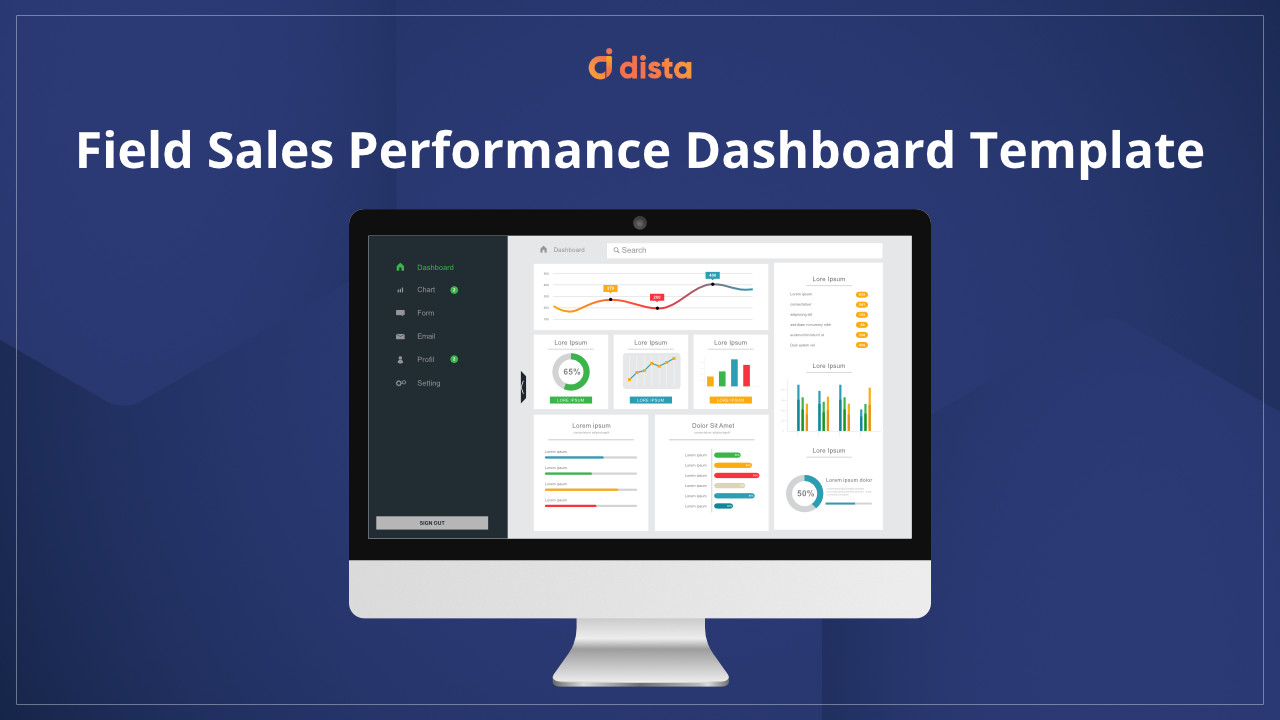Using automation software in field service management is helping companies generate massive data points – be it your technician performance, fleet management or general business productivity! Field service organizations have access to unprecedented amounts of data today. But this huge pile of data needs to be churned into insights for businesses to use it to scale up their impact. It could be improvements, maintenance or simply growth numbers, this actionable business intelligence, presented on visual dashboards, can steer organizations towards improving their service impact on field.

1) Achieving Your Service KPIs
Field service management is a combination of several aspects – your fleet, your technicians, your inventory, all need to work together in harmony to deliver the right customer experience. Hence it becomes necessary for companies to analyze the performance of each of your assets. That’s where analytics and reporting come into play!
By analyzing your field technician feedback reports you can track how and where they are spending their time on field. You can identify your success and failure metrics and work accordingly to improve upon them. Very importantly, you can check if your service SLAs are being fulfilled, and if not, what corrective action needs to be taken.
Tracking field technician movement on dashboards gives a snapshot view of where immediate action is needed. You can prioritize and plan how you would like to deploy your field workforce. This backed with all the data insights makes it more impactful, and even convincing to your team as well as the management.
2) Predictive Field Service
Imagine a situation where your field technician is visiting a customer but is unable to complete his task because the required spare part the customer needs is not available. This results in two negative points – first, your customer experience takes a hit and second, most important, is that this will require a second visit from your field technician – which not only increases your service cost but also hits your first time fix rate.
Predictive analytics by leveraging data from modern field service management software can harness data about a customer’s service history, equipment monitoring logs and records and other issues, and deliver it to the field engineer in real time. In fact, you may also be able to fix an equipment before failure by inspecting past trends.
Analytics help tremendously to keep your inventory lifecycle up to date. In the past, inventory management was a simple task of reviewing and updating. But now with machine learning and sensor technology, you can actually plan for inventory needed in advance and keep your field personnel up-to-date.
With predictive analytics in field service, you can constantly review the analytics of your inventory, spot equipment failures and keep fine-tuning your supply chain. You can avoid the oversupply/undersupply situation and keep your field team ready to attend to field scenarios with better planning and preparation.
3) Opportunity for Cross-selling
As an organization, how would you like to be able to leverage your field service to generate incremental business? This means you are already thinking about ‘what if’ scenarios. With analytics and reports, you can know in advance where the trends are heading to.
A comprehensive customer and device history not just helps technicians to deal with the situation better, but also provides great scope for cross-selling other services that might be useful to the consumer. For example, if the equipment has reached the end of its lifecycle, the technician can suggest the customer to move to a better product. In another case, your service engineer might be able to get a better contract signed on renewal.
Analytics and drill down reports act as predictive tools that can be used to generate more repeat business. This also means you can retain your customers longer and build lasting relationships. A customer is happier if you as a company react proactively and engage before the calamity strikes, and avoid the costly downtime. This also shows a great deal on how important customer service is to your company.
4) Forecasting and Training Your Field Resources
Many times, servicing field jobs becomes challenging because of lack of sufficient manpower. Analytics can address this issue with great accuracy. With analytics, you can forecast your resource demand and plan for it in advance. This trend analysis helps companies to staff correctly taking into consideration the future resource consumption. If the demand is pre-gauged, companies can also skill their field agents to handle customer requests better. By studying historical data, field agents are more aware of the situation and better prepared to service the customer. They can arrive on site with full preparation and carrying the required parts for the job. This has two-fold benefits – companies can plan their resource pool in advance and customer experience turns positive because the job is handled with better skilled hands. Also, this impacts your first time fix rate as well, which is a real concern for field companies.
By leveraging data and analytics, field service organizations can spot critical trends and take preventive action. Diving deep into data patterns enables companies to evaluate the progress of key field areas, break any emerging silos, focus on new opportunities and take any critical decisions to bring changes or improvements within the existing framework. This can fuel innovation and creativity as well as add to service excellence. And finally, this will also go a long way in creating an effective and engaging customer experience.
How Does Dista Add Value to Your Field Service Management?
- Predict equipment failure in advance
- Check which routes need further optimization
- Find out average response time to cases
- Improve first time fix rate
- Keep a check on your inventory pipeline
- Identify the skill gap in your field agents
Let’s talk about how you can transform your field service!












